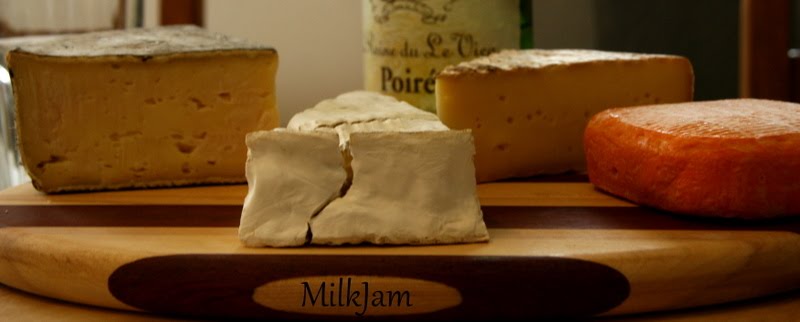 Yesterday Mystery Guest and I went geocaching in the late afternoon. It was a beautiful sunny day and even though we didn't find the two caches (boo!) we had 2 really nice walks in the woods near V-town. The second cache was the most interesting because the person who set the cache up made sure to put up information about the history of this small town. Turns out that there are some famous connections! The family of Robert the Bruce of Scotland was nobility from this town (the Latin name of the town was Brus) and went over with William the Conqueror back in 1066. There is a footpath dating back from this time where the old castle used to be. They tried to reconstruct it but apparently some wars got in the way ;-)
Yesterday Mystery Guest and I went geocaching in the late afternoon. It was a beautiful sunny day and even though we didn't find the two caches (boo!) we had 2 really nice walks in the woods near V-town. The second cache was the most interesting because the person who set the cache up made sure to put up information about the history of this small town. Turns out that there are some famous connections! The family of Robert the Bruce of Scotland was nobility from this town (the Latin name of the town was Brus) and went over with William the Conqueror back in 1066. There is a footpath dating back from this time where the old castle used to be. They tried to reconstruct it but apparently some wars got in the way ;-)That's what I love about living out here, there are a million little things like that which are not advertised or have a million people tramping around, even on a beautiful sunny Sunday afternoon like we had yesterday. Makes you feel like you discovered something special :-)

Just a little side note about Norman French, it fascinates me to no end that English was not just influenced by French as the history books say, but by Norman French with William the Conqueror. Here are some examples of the differences and how English ended up getting influenced by both Norman and standard French as time went on. (Sometimes I hear old people out here still speaking Norman and it always surprises me that it still exists... however it is not the most beautiful patois... ) Another really interesting read on all this (and more!) is Honni Soit Qui Mal Y Pense. It is written in French but it is a very very easy read, very clear and straightforward. Her books are soooo interesting!
Anglo-Norman morphology and pronunciation can be deduced from its heritage in English. Mostly this is done in comparison with continental French. English has many doublets as a result of this contrast:
- warranty - guarantee
- warden - guardian
- glamour - grammar (see below)
- catch - chase (see below)
Compare also:
- wage (Anglo-Norman) - gage (French)
- wait - guetter (French)
- war (from Anglo-Norman werre) - guerre (French)
- wicket (Anglo-Norman) - guichet (French)
The palatalization of velar consonants before the front vowel produced different results in Norman to the central langue d'oïl dialects which developed into French. English therefore, for example, has fashion from Norman féchoun as opposed to Modern French façon.
The palatalization of velar consonants before /a/ that affected the development of French did not occur in Norman dialects north of the Joret. English has therefore inherited words that retain a velar plosive where French has a fricative


4 commentaires:
I loved Honni soit qui mal y pense !!! what a great book. I want to read it again. I wanted to buy the rest of Walter's books too.
Random factoid: Norman French is the dialect that's spoken over in St. Pierre et Miquelon.
I'm going to have to read the book. Your explanation of the transition from Norman French to English was really interesting.
Maybe the fruit is a blue mirabelle? Sorry, mirabelles on the brain, lol. I am definitely checking out that book, sounds fascinating!
They are Sloe berries. Steep them in gin with some sugar for 6 months and have yourself homemade sloe gin
Enregistrer un commentaire